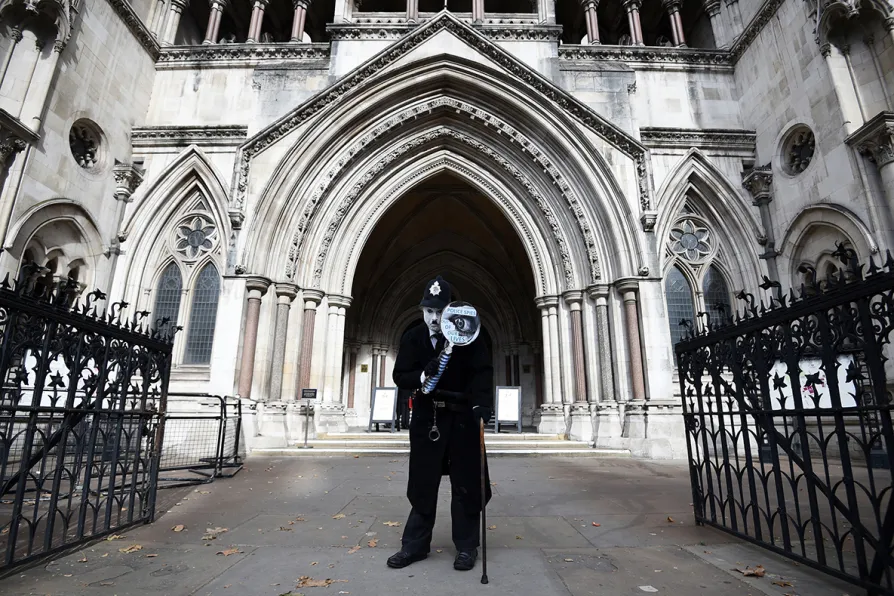
 A demonstrator outside the Royal Courts of Justice, London, where an Investigatory Powers Tribunal is hearing the case of Kate Wilson who was deceived into a relationship by undercover police officer Mark Kennedy, in 2018
A demonstrator outside the Royal Courts of Justice, London, where an Investigatory Powers Tribunal is hearing the case of Kate Wilson who was deceived into a relationship by undercover police officer Mark Kennedy, in 2018
A GERMAN court is set to rule on whether a British spying operation against climate activists in the country in the 2000s was lawful.
The challenge, the first of its kind to look at British police spying on campaign groups outside the UK, focuses on the case of campaigner Jason Kirkpatrick, who brought the action.
The US-born activist was targeted by notorious spycop Mark Kennedy, who served in the now-defunct national public order intelligence unit (NPOIU), while co-ordinating press coverage during the 2007 protests against the G8 summit in Heiligendamm.
The former officer spied on climate activists for the German police force in the northern state of Mecklenburg-Vorpommern.
Mr Kirkpatrick claims that this was illegal because his campaigning activities always fell within the law.
Recently disclosed police files on the campaigner included details that he was not known to be a front-line activist and was seen more as a “media face.”
Mr Kirkpatrick said the files show clearly that police knew he was not involved in organising protests, but spied on him anyway.
Explaining why he brought the challenge to the German courts, Mr Kirkpatrick told the Morning Star: “The tactics that the police have been using in the UK are especially invasive and sabotage people’s lives and I want to do something about that.
“My goal is that such activities are not able to be used against non-violent activists and in this case in particular the climate justice movement.”
The challenge, which is being heard on Friday morning at the Schwerin administrative court, will decide whether Mr Kennedy’s spying on the campaigner was legal under German law. A decision is not expected to be delivered for at least a month.
Mr Kennedy posed as a climate campaigner to infiltrate dozens of groups in Britain and at least nine other countries during his deployment from 2003 to 2009.
His unmasking as a police spy in 2010 lifted the lid on one of the Metropolitan Police’s most coveted secrets – the industrial scale spying and infiltration of more than 1,000 protest groups over 40 years.
The scandal is subject to an ongoing public inquiry in London.
During his deployment Mr Kennedy deceived several women into sexual relationships.
Earlier this week, activist Kate Wilson, who met Mr Kennedy in 2003, was awarded almost £230,000 in compensation after a tribunal found the Met had breached her human rights.
The latest ruling from the Investigatory Powers Tribunal on January 24 found that all Mr Kennedy’s operations, including those not targeting Ms Wilson, were unlawful because they were “unnecessary in a democratic society.”
This has implications for Mr Fitzpatrick as it means he will be able to take his case to the European Court of Human Rights if the Schwerin court does not rule in his favour.


















